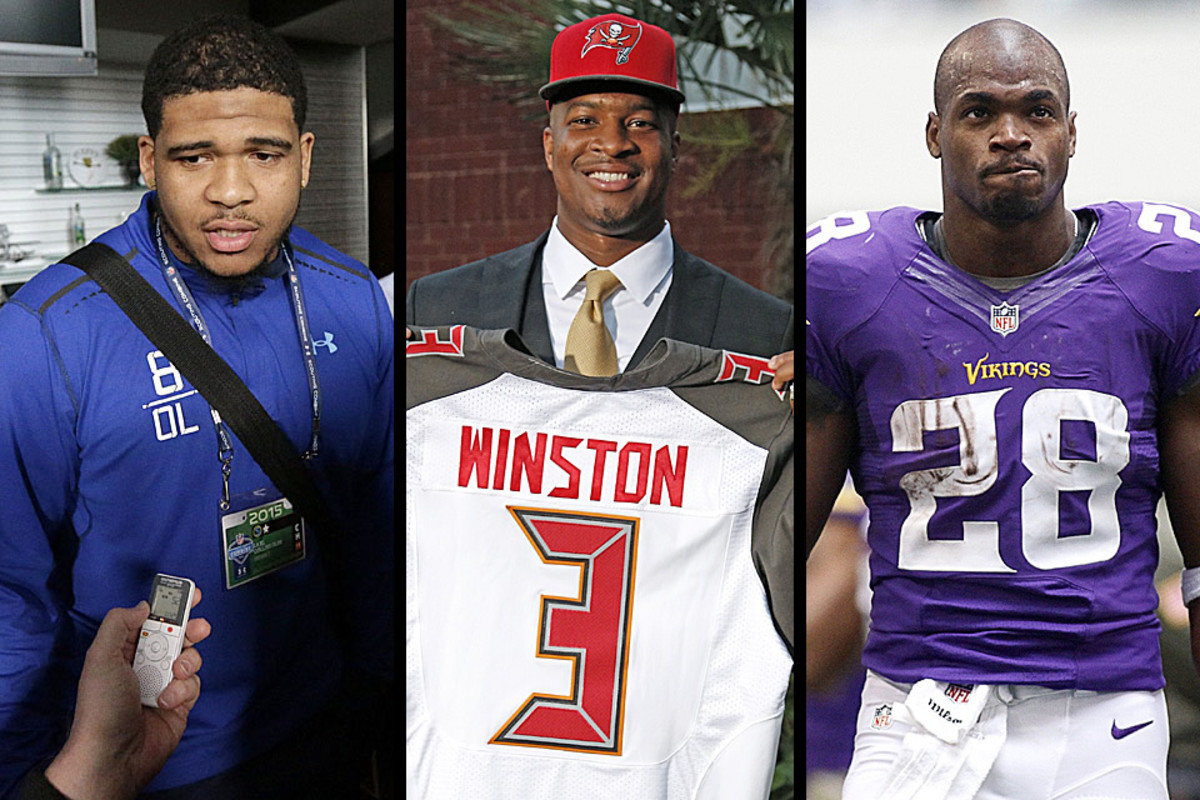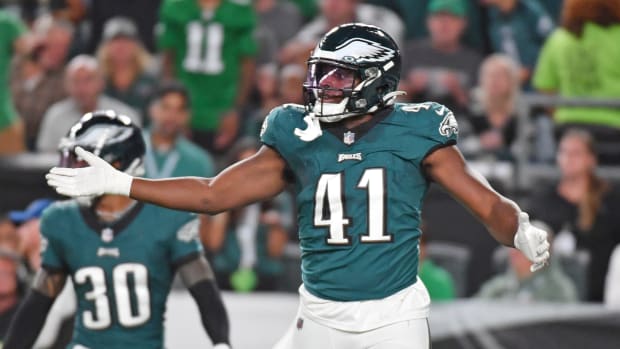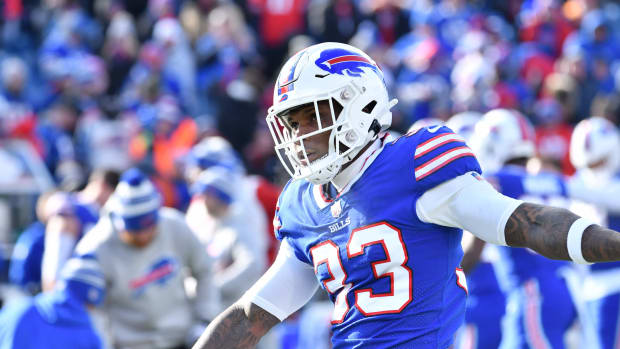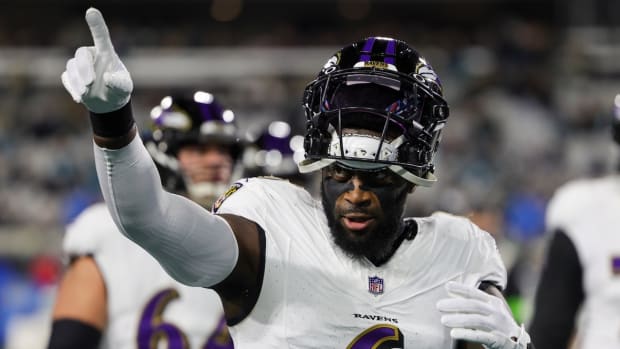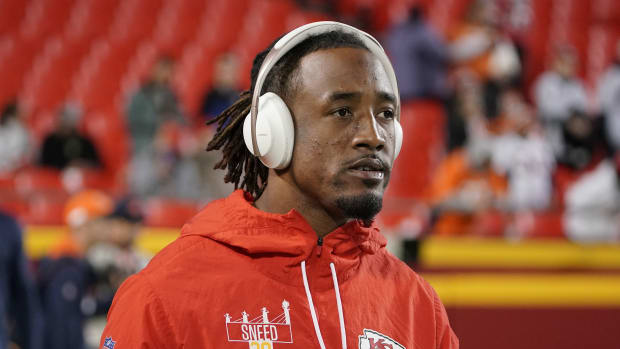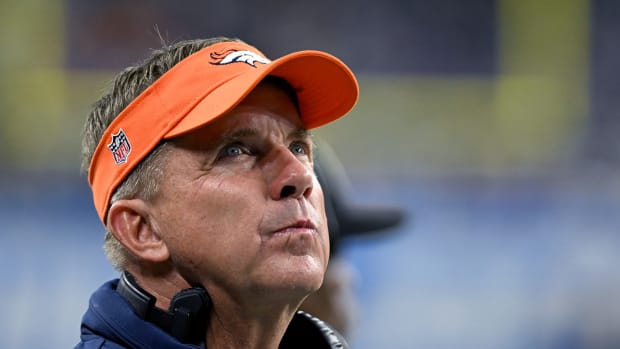Draft Weekend Lingers On
There are always some interesting notes that come out of draft weekend every spring, but this year included three unique ones that are worth watching as the season nears:
An undrafted free agent like no other
The situation involving once-presumed top-15 pick La’el Collins is truly unique in the business of football. First and foremost, there is the true tragedy of a woman, a one-time girlfriend of Collins, found dead, with her newly delivered baby dying a week later. Collins, who is not considered a suspect, tried to meet with law enforcement prior to the draft, but was told Monday was the earliest a meeting could be held. He and his attorney then met with police and investigators Monday; now they wait to hear back, hoping his name is fully cleared.
Collins originally traveled to the draft as an invited player. There, he met with his Chicago-based agents from Priority Sports in a meeting that, according to someone in the room, was as emotional as he had seen in 25 years in the business. The agents then put Collins on the phone with multiple teams to earnestly explain his lack of involvement in the woman’s death, although the impact of the pleas by phone paled in comparison to what the agents had seen in person. Collins then left the draft and returned to Louisiana.
Meanwhile, the agents petitioned the NFL for entry into July’s supplemental draft, arguing that the extra time would fully exonerate Collins and protect the teams. That petition was predictably denied, as (1) the CBA expressly does not allow it, and (2) the NFL would never set precedent of players switching drafts, even under these circumstances.
Next, Collins’ team implemented their strategy of getting Collins to undrafted free agency, telling teams on Friday that if Collins was not drafted that night—in the second or third round—that he would not be signing with any team that selected him in the fourth through seventh rounds. Teams that I spoke with were 99% sure that Collins had no involvement, but it is that 1% possibility of a player having even a tangential involvement in a murder that kept them from drafting him.
The undrafted free agent strategy (which was achieved) was all about the fourth year. While the CBA requires drafted players to sign four-year deals, undrafted players can sign three-year deals, giving them the advantage of (1) restricted free agency in their fourth year and (2) an ability to renegotiate after two years (drafted rookies must wait three years).
Assuming Collins is cleared and signs a three-year deal, he will receive a fourth-year tender (offer) at one of three levels: draft round (in this case, undrafted), second round or first round, with the amounts increasing for each. Projecting those values using recent increases in the tenders—one of the few areas of player compensation that is moving—Collins’ four-year earnings will be commensurate with the following overall picks from this draft:
Draft-Round Tender: 65th pick
Second-Round Tender: 52nd pick
First-Round Tender: 41st pick
The strategy thus makes sense in banking on first-round talent while sacrificing short-term earnings that could have come from a later-round signing bonus.
Collins, however, is an undrafted free agent like no other. If cleared (and that is an important if) he will have many options, and options create leverage (there are already teams champing at the bit). Even with limited earnings based on his undrafted position, the agents can push for a fully guaranteed three-year deal to make the best of this truly unique situation, unseen before in the business of rookie compensation. What is interesting is that, with little to no further information than what they had during the draft, teams are now lining up to meet with and potentially sign Collins. Bills head coach Rex Ryan, told by Collins’ agents to not meet with him yet, went "rogue" and flew down to meet him anyway, and a group of Dolphins' players has organized a recruiting trip of their own.
Were it me, I would have drafted Collins in the seventh round and, should any negative information come out, simply renounce rights to him. As to him sitting out a year, I would have said "Good luck with that" as the agents support the player for a long 12 months. However, no team was willing to take that chance despite the strong interest now.
Novel situations demand novel ideas. If he’s able to move past the legal situation with Collins, we will watch his business situation play out in coming years.
The MMQB's Draft Analysis
Andy Benoit passes along 20 thoughts after seven rounds of the draft, including his takes on blind praise for the Pats and problem players in Dallas. FULL STORY
Option option
As noted above, the CBA requires that all drafted rookies sign four-year contracts, ensuring team contract control for four years in a profession where the average career lasts less that that time. That control extends to a fifth year, via an option year, for first-round players. Teams had until Sunday to apply the 2016 option on 2012 first-rounders, magically turning the four-year contracts they signed three years ago into five-year contracts, with little risk for the team.
Optioned players now have a 2016 injury guarantee, triggered by 2015 injury that renders a player unable to pass a physical and play in 2016. That is rare. In my 20 years in the NFL as an agent and a team executive, I never saw an injury guarantee trigger. With a full guarantee not triggering until March, optioned players can still be released—with no remaining financial obligation from the team—at any point between now and then. For a player with an injury history, such as the Redskins’ Robert Griffin III, there is a potentially sticky scenario of a team out of contention making a business decision to bench him to eliminate the injury guarantee exposure.
For players not optioned—including Morris Claiborne (Dallas), Bruce Irvin (Seattle), Nick Perry (Green Bay) and Doug Martin (Tampa Bay)—that is not a good sign in terms of fitting into a team’s future plans. And for players that were optioned—including stars Andrew Luck (Indianapolis) and Ryan Tannehill (Miami), and Julio Jones (Atlanta) and A.J. Green (Cincinnati) from the 2011 draft class—it will be interesting to see if there are any low rumbles of discontent for getting extensions. Because some players from those two draft classes have signed long-term extensions—J.J. Watt, Patrick Peterson, Robert Quinn, Tyron Smith and (this week) Whitney Mercilus—those who haven’t may wonder why their team doesn’t feel as strongly about them as the other teams did about those extended last year.
The option year is yet another benefit of a rookie compensation system that is the gift to NFL teams keeps on giving. Speaking of rookie compensation…
A Trade Was Never Close
The Titans made sure everyone knew exactly what they thought of Marcus Mariota: He was always going to be their QB of the future FULL STORY
Winston contract
The Bucs did not waste any time signing Jameis Winston, making him not only the first overall lpick, but also the first pick to sign, as he received a contract worth $25.35 million, including a $16.7 million signing bonus.
With rookie contracts largely present, the only true negotiable issue was offset language, allowing the team to recover guaranteed money were Winston to be released sometime in the next four years and signed to play elsewhere. Precedent was mixed on this issue: the top picks in 2011 and 2012, Cam Newton and Andrew Luck did not have offset language. The top picks in 2013 and 2014, Eric Fisher and Jadeveon Clowney, did. Winston lost the battle; he does have offset language, but has the quid pro quo of better payment terms (early roster bonus payments) in the second, third and fourth years of the contract
For the first time since 2011, there is an increase (15%) in signing bonuses to the rookie class. Concerned about the optics of a declining salary cap number in 2012, the NFLPA made a deal to sacrifice rookie bonus increases for three years. Now that freeze on rookie contract has ended, with Winston being the first beneficiary of the increase.
Peterson Principle
To this point, agent Ben Dogra’s dogged quest to have Adrian Peterson separated from the Vikings has met continued resistance. Now, apparently convinced that the Vikings are keeping Peterson, Dogra has switched to a different lane of dissatisfaction, wanting a further “commitment” which, of course, means money.
With the Vikings intent on honoring Peterson’s $12.75 million salary this year, Dogra’s likely target is guarantees in Peterson’s future salaries of $14.75 and $16.75 million, respectively. Without any guarantee, those numbers are just that, numbers on a page. Although Dogra will point to upgrades this offseason to Marshawn Lynch and LeSean McCoy, Peterson’s case is a different coming off a paid leave and suspension.
We’ll see where this ongoing drama takes Peterson, the Vikings and the dogged Dogra.
Follow The MMQB on Facebook, Twitter and Instagram.
[widget widget_name="SI Newsletter Widget”]
































